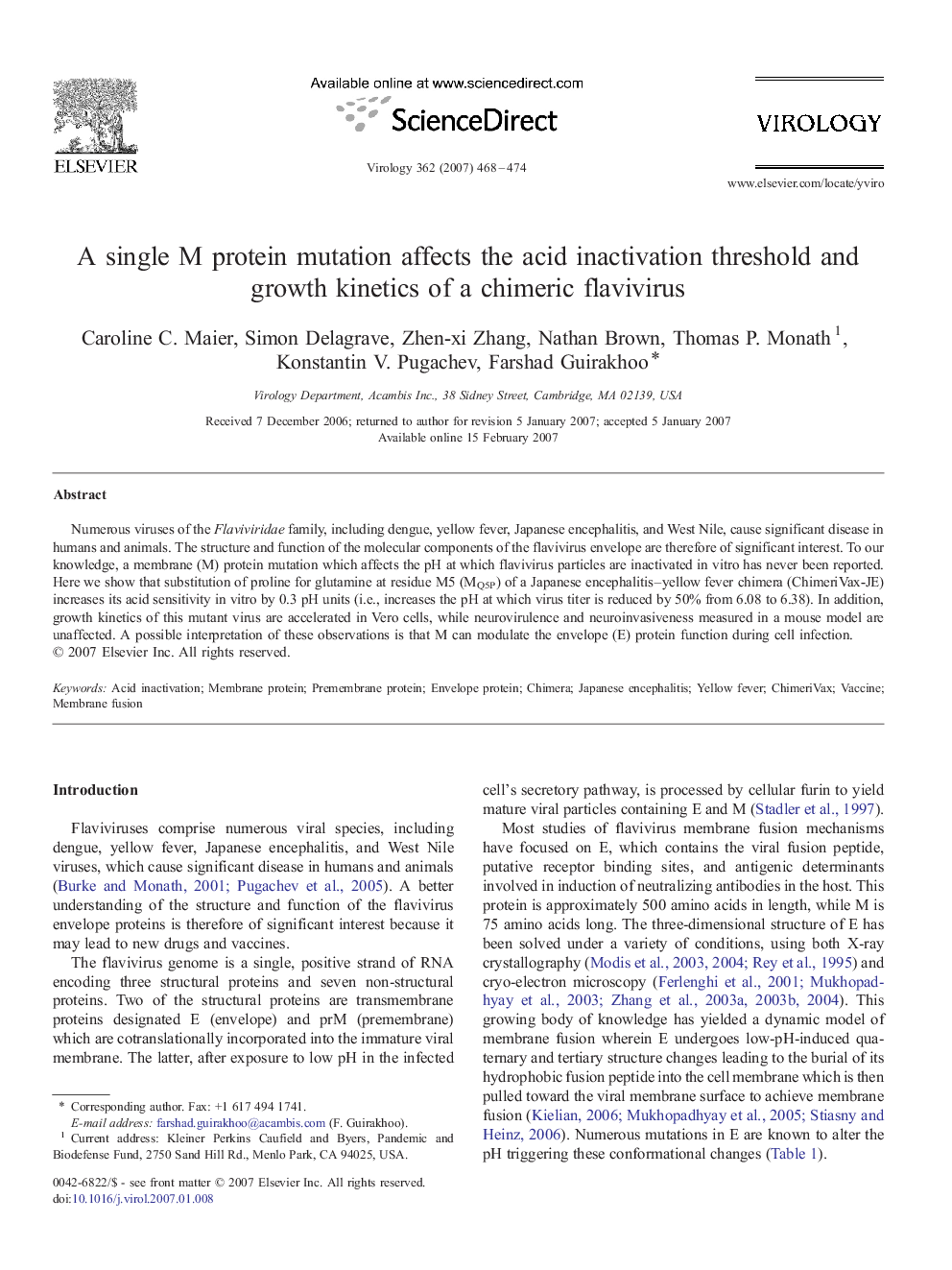| Article ID | Journal | Published Year | Pages | File Type |
|---|---|---|---|---|
| 3426366 | Virology | 2007 | 7 Pages |
Numerous viruses of the Flaviviridae family, including dengue, yellow fever, Japanese encephalitis, and West Nile, cause significant disease in humans and animals. The structure and function of the molecular components of the flavivirus envelope are therefore of significant interest. To our knowledge, a membrane (M) protein mutation which affects the pH at which flavivirus particles are inactivated in vitro has never been reported. Here we show that substitution of proline for glutamine at residue M5 (MQ5P) of a Japanese encephalitis–yellow fever chimera (ChimeriVax-JE) increases its acid sensitivity in vitro by 0.3 pH units (i.e., increases the pH at which virus titer is reduced by 50% from 6.08 to 6.38). In addition, growth kinetics of this mutant virus are accelerated in Vero cells, while neurovirulence and neuroinvasiveness measured in a mouse model are unaffected. A possible interpretation of these observations is that M can modulate the envelope (E) protein function during cell infection.
